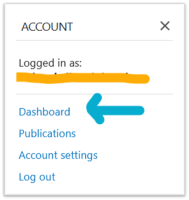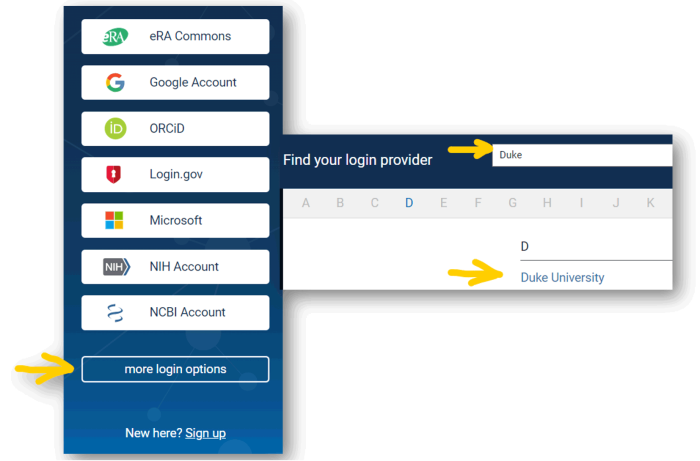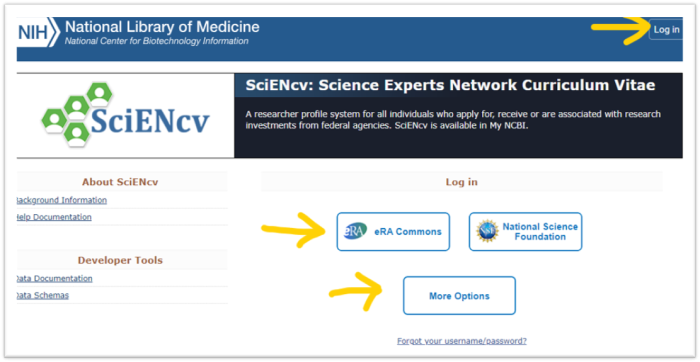Labor Day HolidayMedical Center Library & Archives staff will be unavailable on Monday, September 4th. Access to the building will not be available during this time. |
Welcome!
Megan von Isenburg, Associate Dean for Library Services & Archives 
Welcome to a new academic year at the School of Medicine, School of Nursing, and Duke Health! We are thrilled to welcome new students, trainees, faculty and staff. Whether you are new to Duke or are already part of the Duke community, we invite you to explore our resources, services, and spaces.
Our mission is to provide biomedical information for inquiry, discovery, and innovation. Our resources can help you learn, teach, do research, and care for patients, Below you will find quick summaries and examples of our offerings. Please follow the links below, explore our Website, and reach out to our staff at medical-librarian@duke.edu to learn more. We are here for you!
High Quality Resources for Teaching, Research, and Patient Care
Our core collection includes over 12,000 electronic biomedical journals, over 100 biomedical search databases, and thousands of electronic books. We also offer print books, including those in our Engel collection, which includes popular titles on diversity and inclusion and science and medicine in society.
Our resources are available on and off campus through our Library Website. While most resources are available via NetID login, the VPN can also be used to streamline access.
Responsive Services from Experts
 Our library staff is our greatest resource. Research librarians teach classes and consult on topics related to evidence-based practice, database searching, systematic reviews, citation management, where to publish, and how to visualize and demonstrate the research impact of journal articles. In addition, our staff can help you get materials from other libraries at no cost to you.
Our library staff is our greatest resource. Research librarians teach classes and consult on topics related to evidence-based practice, database searching, systematic reviews, citation management, where to publish, and how to visualize and demonstrate the research impact of journal articles. In addition, our staff can help you get materials from other libraries at no cost to you.
 Flexible and Welcoming Spaces
Flexible and Welcoming Spaces
Located on Levels 1, 2, and 3 of the Seeley G. Mudd Building, the Library offers individual and group study areas, reservable study rooms, and computers, printing/scanning, and specialized software, Staff and books are available Monday - Friday: 8am to 5pm. Library study and workspaces are available to Duke Health and Duke University ID Badge holders Monday - Thursday: 7am - 10pm; Friday: 7am - 5pm; and weekends 10am - 10pm. The Library is accessible to the General Public Monday - Friday: 7am - 5pm.
Historical and Institutional Knowledge
Our Archives maintains the administrative and institutional records of Duke Health's history. Archives staff can identify Duke Health historical materials for research, exhibits, marketing, administrative, and classroom use. We can also help you develop records management plans to help preserve our institutional history for the future.
We are your Library! Please reach out to me at megan.vonisenburg@duke.edu with your questions, comments, and suggestions on how the Library & Archives can help you be successful!
Library Services & Resources
 How can I get assistance?
How can I get assistance?
Our Service Desk (Level 2R) is open 8a – 5p and our chat function 9a – 5p, Monday – Friday. Library staff are also available to meet with faculty, staff, and students by phone, email, and or Zoom. Library classes are held online.
When is the Library building accessible?
Access to the Medical Center Library & Archives is available to Duke Health and Duke University ID Badge holders Monday – Thursday: 7a – 10p, Friday: 7a – 5p, and weekends 10a - 10p. The Library is accessible to the General Public Monday – Friday: 7a – 5p. Duke University ID badge holders may get access to the building by requesting a Prox card from the University DukeCard Office. All patrons and staff using the facility are expected to follow Duke's Covid guidelines and requirements.
What spaces in the Library are available?
Library study rooms, cubicles, and open spaces are available. Reservations are required for group study spaces and cubicles. Once reserved, you will only need to check-in at your space and not at the Lobby Desk. Any open tables, soft seating, PIN stations, and computers are all available for use without reservation.The Reading Room (Book collections, Study Rooms 102A & 102B, Richmond House Room) is open Monday – Friday: 8a – 5p.
How can I get a book?
Book stacks (Level 1) are open Monday – Friday: 7a – 5p and available for individual browsing with no reservation required. To borrow books, enter your Duke NetID and password in the self checkout machine in the Reading Room on Level 1. If you prefer to have a book pulled for you and made available for pick up, that will remain an option as well. Simply place a hold in the online catalog for the book you need.
How can I return a book I have borrowed?
Please return books to the book drop located to the left of the Library's front entrance.
Can I make requests for Interlibrary Loan items?
Interlibrary Loan and Document Delivery Services are available to fill routine article requests. Older and more obscure articles may be more difficult to acquire. Book borrowing may be limited with delays.
If you are a Duke clinician, faculty, or staff member and have an urgent request for a full-text article(s) related to direct patient care, please alert us in the notes field on the request form.
Please note: Access to Document Delivery/Interlibrary Loan Services is not available to affiliates or to other libraries at this time.
How can I get materials for a class I am teaching?
E-reserves software is under development and currently unavailable for Fall 2023 and Spring 2024. However, we are able to help streamline linking to Duke-licensed resources and assist with acquiring copies of materials otherwise not available at Duke. Please see our Course Reserves page for more information.
Can I renew library materials online?
If you need to renew items, you may do that online using your Duke NetID and password. If you have any issues or concerns about renewing library materials, please contact User Services.
Are printers and scanners available?
Printers and scanners are available for use with no reservation required. See Computers & Equipment for more information.
If you have questions or concerns, please contact Megan von Isenburg, Associate Dean for Library Services & Archives, at megan.vonisenburg@duke.edu. or complete our feeback form.
We Have Expanded Our Hours!
| Day | *ID Badge Access to Building | Service Desk/**Book Access | Reference Staff | General Public |
| Monday | 7:00a – 10:00p | 8:00a – 5:00p | 9:00a – 5:00p | 7:00a – 5:00p |
| Tuesday | 7:00a – 10:00p | 8:00a – 5:00p | 9:00a – 5:00p | 7:00a – 5:00p |
| Wednesday | 7:00a – 10:00p | 8:00a – 5:00p | 9:00a – 5:00p | 7:00a – 5:00p |
| Thursday | 7:00a – 10:00p | 8:00a – 5:00p | 9:00a – 5:00p | 7:00a – 5:00p |
| Friday | 7:00a – 5:00p | 8:00a – 5:00p | 9:00a – 5:00p | 7:00a – 5:00p |
| Saturday | 10:00a – 10:00p | Closed | Closed | Closed |
| Sunday | 10:00a – 10:00p | Closed | Closed | Closed |
 *Duke Health and Duke University ID Badge holders
*Duke Health and Duke University ID Badge holders
*Duke University ID badge holders may get access to the building by requesting a DukeCard from the University DukeCard Office.
**Reading Room (Book collections, Study Rooms 102A & 102B, Richmond House Room)
All patrons and staff using the facility are expected to follow Duke's Covid guidelines and requirements.
Your Library Liaisons
What are Library Liaisons?
In order to better serve Duke University and the Health System, librarians at the Medical Center Library & Archives have been assigned to work with specific departments or groups. If you do not see your program listed but you would like to work with a librarian, please contact Sarah Cantrell, Associate Director for Research and Education, at 919.660.1131.
What can Library Liaisons do?
• Meet with you by phone, email, WebEx or Zoom
• Guest lecture in your class or journal club
• Integrate evidence-based practice and information literacy into your course or curriculum
• Collaborate on systematic reviews of the literature and grant preparation
• Consult on literature search strategies and resource selection
Who is my Library Liaison?
Lesley Skalla, PhD, MSLS
lesley.skalla@duke.edu
919.660.1197

Steph Hendren, MLIS
stephanie.hendren@duke.edu
919.660.1120

of Nursing
Beverly Murphy, MLS
beverly.murphy@duke.edu 919.660.1127
Tipsheet: Getting Started

If you need help with Institutional Animal Care and Use Committee (IACUC),
please contact us at iacuc-librarian@duke.edu or 919.660.1100.
Use SciENcv for Your Biosketch!
Lesley Skalla, Research & Education
 Science Experts Network Curriculum Vitae (SciENcv) is a system for creating and updating your NIH or NSF biosketch. The biosketch documents your qualifications and experience for a specific role or project and is required for all NIH and NSF grant applications.
Science Experts Network Curriculum Vitae (SciENcv) is a system for creating and updating your NIH or NSF biosketch. The biosketch documents your qualifications and experience for a specific role or project and is required for all NIH and NSF grant applications.
Use of SciENcv to create biosketches will be required for NSF proposals submitted on or after October 23, 2023. Please see the NSF policy announcement for more information.
Duke strongly encourages use of this system since it will save you time now and in the future due to its automated features.
• Pulls in profile information if you already have a profile in eRA Commons, NSF, or ORCID
• Uploads your publications from My NCBI’s My Bibliography or through an ORCID account
• Allows you to create several different versions of your profile by reusing information previously entered
Why create more than one profile? You may want to change your biosketch to reflect special expertise or knowledge that you bring to a specific award. For example, changing your general profile statement or your contributions to science, could show how your expertise and experiences meet the aims of a new awards proposal.
You can add publications to SciENcv via My Bibliography (PubMed publications) or ORCID (good for publications not in PubMed). To keep your publication lists up-to-date, we highly recommend that you use the instructions in 30 Minutes to Increase Your Research Impact to clean up your scholarly profile accounts (e.g., Duke Elements, ORCID), link them to each other, and streamline your scholarly profile management.

To create a biosketch in SciENcv, you will need to have a My NCBI account.
There are many options for signing up for a My NCBI account including using NIH eRA Commons, NSF Research.gov, or ORCID account.
Once you have your My NCBI account, you can access SciENcv from your My NCBI dashboard. Just sign into My NCBI, click your user profile link in the upper right-hand corner, and select Dashboard. Locate the SciENcv box and select the “Manage SciENcv” link.
You may also go directly to the SciENcv Website. Sign in using your My NCBI account (top right-hand corner) or select one of the Log in options (e.g., eRA Commons, National Science Foundation, or More Options)
Don't have a My NCBI, NIH, or NSF account? No problem! Anyone can use SciENcv. To login with your Duke NetID and password, select “More Options” from the SciENcv home page, and then select “more login options.” A new search box will open where you can type in Duke and select “Duke University.” You will then be prompted to login with your Duke NetID and Password.

You should now be ready to create your biosketch using SciENcv! If you need further help, please watch our Creating a BioSketch Using ScENcv video tutorial. It will introduce you to the basics of SciENcv including creating an NCBI account. If you need further assistance, please contact medical-librarian@duke.edu.
AccessSurgery Trial
Li Ma, Associate Director, Content & Discovery and Katherine Smith, Content & Discovery Associate

We are pleased to announce a two-year trial of AccessSurgery, an integrated online surgery resource that enhances knowledge and delivers quick answers to surgical inquiries. The trial began in June 2023.
AccessSurgery features:
- Leading surgical textbooks
- Instructional videos
- 16,000+ high quality full-color images
- Interactive Board Revieis w
- Integrated Drug Database
- Clerkship Corner
AccessSurgery is searchable directly but is also accessible from our Databases page. Please email us with any questions or feedback.
Check Out Our New Database Search Tips Guide
Brandi Tuttle and Lesley Skalla, Research & Education
 The Library has just rolled out a new guide highlighting some of our most commonly used databases. No matter whether you are answering clinical questions, seeking drug information, conducting research, or looking into your research impact, the guide will provide useful tips on selecting the correct database and getting started with the search. There is also some general information on how to get started with your search, the types of literature reviews, full text retrieval, and how to get more help from a Librarian.
The Library has just rolled out a new guide highlighting some of our most commonly used databases. No matter whether you are answering clinical questions, seeking drug information, conducting research, or looking into your research impact, the guide will provide useful tips on selecting the correct database and getting started with the search. There is also some general information on how to get started with your search, the types of literature reviews, full text retrieval, and how to get more help from a Librarian.
Check it out and let us know what you think! Happy Searching!
Medical Archives: Digital Research Resources
Rebecca Williams, Archives Librarian for Research, Outreach, and Education
Lucy Waldrop, Assistant Director for Medical Center Archives
 Medical Center Archives is open for Duke researchers by appointment only. In order to limit the number of people in our building, we have designated Tuesdays and Thursdays as research days. Please contact us to schedule a visit.
Medical Center Archives is open for Duke researchers by appointment only. In order to limit the number of people in our building, we have designated Tuesdays and Thursdays as research days. Please contact us to schedule a visit.
Staff are available for remote consultation (M-F) via our online request form. We are happy to assist you in locating digital materials for your research and making digital reference copies when possible. Below are some online resources that are available 24/7.
MEDSpace
If you’re looking for historic images, our digital repository, MEDSpace, is an excellent place to start. It contains nearly 700 photographs documenting the history of Duke Medicine. You can also find early publications, medical illustrations, artwork, and medical artifacts.
- Historical Images Documenting Duke Health
- Duke Health Historical Collections
- Duke Medical Center Publications
Digitized Intercom
The Intercom, Duke Medicine’s primary news publication from 1953 to 1986, featured information about campus events and construction, faculty and staff news, and articles on medical research and innovations at Duke. The first 25 years of this publication have been digitized, making more than 500 issues available online.
Oral History Collections
Medical Center Archives has a number of rich oral histories dating from the 1960s to the present, some of which are available for research. This program exists to capture the Medical Center's history in the words of the people who have witnessed or participated in that history. Both the recordings and the transcripts of these histories are housed in the Medical Center Archives, and many of the transcripts are available on MEDSpace.
Digital Exhibits
Archives has several digital exhibits about key figures and events in the history of the Medical Center. Some of the topics include the Duke Poison Control Center, Dr. Wilburt C. Davison’s correspondence with Sir William Osler, and Women in Duke Health.
DUMC Archives Blog and Instagram
Updated regularly, our blog and Instagram are the places to go for Archives news, to see materials from our collections, and discover stories about the Medical Center’s history.
Accessing Resources from Off Campus
Duke students, faculty and staff and most affiliates with a Duke NetID have off-campus access to many online resources, such as databases and e-journals. Simply start at our Website and you will be prompted to sign in with your Duke NetID and password once you get to a resource that requires authentication. Or you may use the Duke NetID Login button at the top right of the site to avoid the need for repeated resource prompts. This login will last until you close your browser. 
With the exception of the Duke FormWeb, Micromedex, and CultureVision (which require the VPN), no VPN or Virtual PIN is needed to access our resources. A small subset of Duke's online resources are restricted by license agreements and cannot be accessed from off-campus.
The Duke Medicine network and clinical systems, including the Duke Medicine VPN, use Multi-factor authentication (MFA). You will be asked to type a second password to access our resources.
Be sure to use the Duke version of PubMed if you're off campus and need to get to full text. When you find an article you want to read, click on the Get it@Duke button, which will prompt you to sign in with your Duke NetID and password. Remember that Get it@Duke will only take you to the full text of what we subscribe to.
If we do not subscribe to the content you are looking for, you will be able to use Get it@Duke to look for the journal in the catalog or to request the article through Document Delivery/Interlibrary Loan Services. Before making a request, please check if articles are available in Duke collections by using tips for "Finding Specific Journal Articles & Full Text."
Please Note: With implementation of the ZScaler security tool across Duke Health, some users have reported barriers to accessing Library resources. If you are having issues getting access, please submit a ticket to us via our Report an Access Issue Form.
For more detailed information about accessing our resources remotely, connect to our Access from Off Campus Web page, email medical-librarian@duke.edu, or contact us via our chat box.
We Offer a Variety of Free Online Classes
 We offer a variety of online classes on research and searching topics every month. All classes are free and offered virtually, though registration through our Website is required. In addition to these classes, you can also request an online session for yourself or a group or schedule an appointment for a research consultation.
We offer a variety of online classes on research and searching topics every month. All classes are free and offered virtually, though registration through our Website is required. In addition to these classes, you can also request an online session for yourself or a group or schedule an appointment for a research consultation.
| August Classes Register for one today! | ||
| August 15 | 12 - 1p | Searching Scopus |
| August 16 | 12 - 1p | Advanced PubMed |
| August 22 | 9 - 10a | Searching CINAHL Effectively |
| August 24 | 3 - 4p | Understanding NIH Data Management & Sharing Requirements |
| August 28 | 12 - 1p | EndNote |
| August 28 | 2 - 3p | Widen Your Search with Web of Science |
| August 29 | 12 - 1p | Building Your Researcher Profile |
| August 30 | 11a - 12p | Advanced PubMed |
| August 30 | 3 - 4p | Zotero |
Documenting the Duke Midwifery Service & Durham Maternal Health
Lucy Waldrop, Assistant Director for Medical Center Archives

In the August 2021 issue of our newsletter, we began a multipart series highlighting Archives Oral Histories, a rich collection of over 350 interviews spanning from the 1960s to present day. This collection provides a space for the Medical Center’s history to be told in the words of the individuals who witnessed and participated in that history. Capturing these interviews ensures that the voices and memories of people, communities, and participants are added to the historical record.
In Part 7 of this series, we introduce our newest group of oral histories documenting Duke’s involvement with maternal health in Durham from the late 1990s and into the 21st century, through interviews with members of the Duke Midwifery Service (DMS) and the Durham County Health Department. These oral histories were made possible with a grant from The Josiah Charles Trent Memorial Foundation Endowment Fund.
In 2021, the Medical Center Archives received a donation of archival materials from Amy MacDonald, CNM, MSN, DMS Director from 1999 to 2014. The Duke Midwifery Service Records have been processed and are now open to researchers. The materials in this collection document a program and type of medical care not previously represented in our Archives’ holdings. The donation of these records provided us with an opportunity to further examine the relationship between maternal health in Durham and the role that Duke has played. While we anticipate these materials will be of value to future researchers, they only tell a partial story of maternal health in Durham.
In order to tell a more complete story, we sought and obtained funding to capture the unique stories from nurse midwives and other birth workers in Durham, NC during this time period. These interviews provide first-hand accounts of the history of the DMS, social and institutional relationships between Duke and Durham, and maternal health.
The following oral history interviews are available for researchers. The interviewees are pictured below from left to right.
- Tasha Allen, RN (early group prenatal care nurse)
- Kim Q. Đâu, CNM, MSN (Duke undergraduate; Duke Midwifery Service 2007-2010)
- Amy MacDonald CNM, MSN (Director, Duke Midwifery Service; first inpatient nurse midwife at Duke in 1999)
- Helen M. Mikul CNM, MSN (founding CNM of Duke Midwifery Service)
- Antionette (Ann) Milligan-Barnes (nurse coordinator for Centering Pregnancy)

The Archives’ Oral History Program will continue to grow as we capture and add more interviews from those who have witnessed and participated in the Medical Center's history. See below for a brief description of six collections in our Oral History Program, previously highlighted in our newsletter.
Part 1: "Archives Oral Histories" (August 2021)
Outlined what an oral history is and the types of oral histories held at the Medical Center Archives
Part 2: "Women in Duke Health" (October 2021)
Showcased this newly redesigned and updated online exhibit of women in multiple fields at Duke, many who were pioneers or “firsts” in some way in their disciplines
Part 3: "David C. Sabiston Oral History Project" (December 2021)
Highlighted the oral history project initiated by the Department of Surgery as a way to collect firsthand accounts and memories from people who knew Dr. Sabiston in order to write a definitive biography
Part 4: "Department of Medicine Oral History Project" (April 2022)
Discussed the department's recent history through the voices of its faculty
Part 5: "Department of Surgery Chief Residents Oral History Project" (June 2022)
Introduced a fairly new oral history project that began in 2018 to collect annual interviews with the Department of Surgery’s Chief Residents as a way to document their experiences at Duke.
Part 6: "Archives Oral Histories: Preserving the Past & Present for the Future" (August 2022)
Reviews Parts 1-5 of the Oral History Series.
Oral history transcripts are located in the Oral History Collection on MEDSpace. For oral history finding aids see the Archives’ Collections Listing. If you have questions or interests in learning more about the oral histories or any of our Archives holdings, please contact the Archives staff.
Summer Reading Time
 Katherine Smith, Content & Discovery
Katherine Smith, Content & Discovery
Looking for something to read or listen to on your summer vacation? Below are a few e-books and audiobooks available from Duke's OverDrive Collection. Descriptions are excerpted from the publisher as available in OverDrive.
Louise Gray
In an effort to make sense of the complex food system we all engage with, Louise Gray, author of the award-winning The Ethical Carnivore, tracks the stories of our recommended servings of fruits and vegetables, journeying from the farm to the fruit bowl, Through visits to farms, interviews with scientists and trying to grow her own, she digs up the dirt behind organic potatoes, greenhouse tomatoes and a glut of courgettes.
Nicole Chung
From the bestselling author of All You Can Ever Know comes a searing memoir of family, class and grief - a daughter's search to understand the lives her adoptive parents led, the life she forged as an adult, and the lives she's lost. Exploring the enduring strength of family bonds in the face of hardship and tragedy, A Living Remedy examines what it takes to reconcile the distance between one life, one home, and another. It sheds needed light on some of the most persistent and grievous inequalities in American society.
Leah Lakshmi and Piepzna-Samarasinha
Written over the course of two years of disabled isolation during the pandemic, this is a book of love letters to other disabled Queer and Trans Black, Indigenous, and People of Color (QTBIPOC), those concerned about disability justice, the care crisis, and surviving the apocalypse. It honors songs for kin who are gone, provides recipes for survival, questions the validity of real talk about care, and offers help in organizing disabled families, kin networks, and communities.
Nathan Vardi
Vardi's narrative immerses readers in the recent explosion of biotech start-ups. He describes the scientists, doctors, and investors who are risking everything to develop new, life-saving treatments, while introducing suffering patients for whom the stakes are life-or-death. A gripping nonfiction read, For Blood and Money illustrates why it's so hard to bring new drugs to market, explains why they are so expensive, and examines how profit-driven venture capitalists are shaping the future of medicine.
Rachel Aviv
This narrative poses fundamental questions about how we understand ourselves during crisis and distress. Animated by a profound sense of empathy, Aviv's gripping exploration is refracted through her account of living in a hospital ward at age six and meeting a fellow patient whose life parallels hers, until it ceases to. Aviv asks how the stories we tell about mental disorders shape our lives and identities. Challenging the way we understand and talk about illness, her account is a testament to the porousness and resilience of the mind.
New Archives Finding Aid Search Portal
Rebecca Williams, Archives Librarian for Research, Outreach, and Education
This summer we rolled out some new updates to the Duke Medical Center Archives Website. Though you might have noticed some slight changes to the front page of our Website, the biggest update is a brand new portal for our Finding Aids.
Findings aids, also called collection guides, are detailed online descriptions of our materials. We publish a guide for every open collection in the Duke University Medical Center Archives. These guides outline the contents of the collection, explain how a specific collection is organized, and give a history of the person or organization that produced the collection.
Previously, our Website featured a single page listing the published finding aids. The new portal offers more advanced searching with several new filtering options. Patrons can limit their search by collection, creator, date range, level, names, or subject. Searches may also be limited to materials that are available online.
Another great new feature is the ability to bookmark materials of interest at the collection, series, or file level. The saved bookmarks can be exported as a CSV file for your records.
We hope this new update makes finding and accessing archival materials easier for our patrons! Please contact the Archives with any questions or suggestions.
Staff Highlight: Yash Jani and Erin Simon
Mindy Guzman, Program Assistant, Administration
Welcome to our Newest Assistants!
Yash Jani
| Erin Simon
| |
1. What is your academic program? 2. Did you always know you wanted to be in the area you have chosen to pursue? 3. What do you like the most about your coursework? 4. What do you like most about working here at the Library? 5. What are some of your outside interests or hobbies? 6. How would your friends and family describe you? | ||
Staff News & Publications
 In the recent Medical Library Association Caucus elections, Brandi Tuttle, Research & Education Librarian and Liaison to the Physician Assistant, Pathologists’ Assistant, & Master of Biomedical Sciences Programs, was elected as Chair-Elect of the Technology in Education Caucus (TEC).
In the recent Medical Library Association Caucus elections, Brandi Tuttle, Research & Education Librarian and Liaison to the Physician Assistant, Pathologists’ Assistant, & Master of Biomedical Sciences Programs, was elected as Chair-Elect of the Technology in Education Caucus (TEC).
The following publications have been authored/co-authored by Medical Center Library & Archives Staff (highlighted in bold).
Stanford-Moore, G. B., Canick, J., Kaplan, S., & Lee, W. T. (2023). International Collaboration Trends in Facial Plastic and Feconstructive Surgery: A Systematic Bibliometric Scoping Review. JAMA Otolaryngology - Head & Neck Surgery, 149(6), 540-545.
Mulawa, M. I., Knippler, E. T., Al-Mujtaba, M., Wilkinson, T. H., Ravi, V. K., & Ledbetter, L. S. (2023). Interventions to Improve Adolescent HIV Care Outcomes. Current HIV/AIDS Reports. Aug; 20(4):218-23.
Gagne, J. C., Lee, E., Slack, J., Lee, Y., & Ledbetter, L. (2023). The Experience of Resilience in Newly Graduated Nurses: A Qualitative Metasynthesis. Nurse Education in Practice, Jul; 70:103681.
Highland Hospital Exhibit Currently on Display

Highland Hospital
Medical Center Library & Archives - Level 1
On Display through October, 2023
Highland Hospital, a small, for profit, inpatient mental hospital located in Asheville, NC was owned and operated by Duke University from 1944 to 1980. This exhibit showcases materials from the Highland Hospital Records and provides an interesting case study of 20th century mental health care.
Improve Your Library Research Skills Online!
The Medical Center Library & Archives offers online training on a variety of topics. Request an online session for yourself or a group, schedule an appointment for a research consultation, or register for a class.
Publication Schedule & Staff
Duke University Medical Center Library & Archives News is published bimonthly.
| Megan von Isenburg Associate Dean | Beverly Murphy Editor |
| Editorial Board | |
| Neal Fricks | Mindy Guzman |
| Lesley Skalla | Katherine Smith |
| Lucy Waldrop | |














